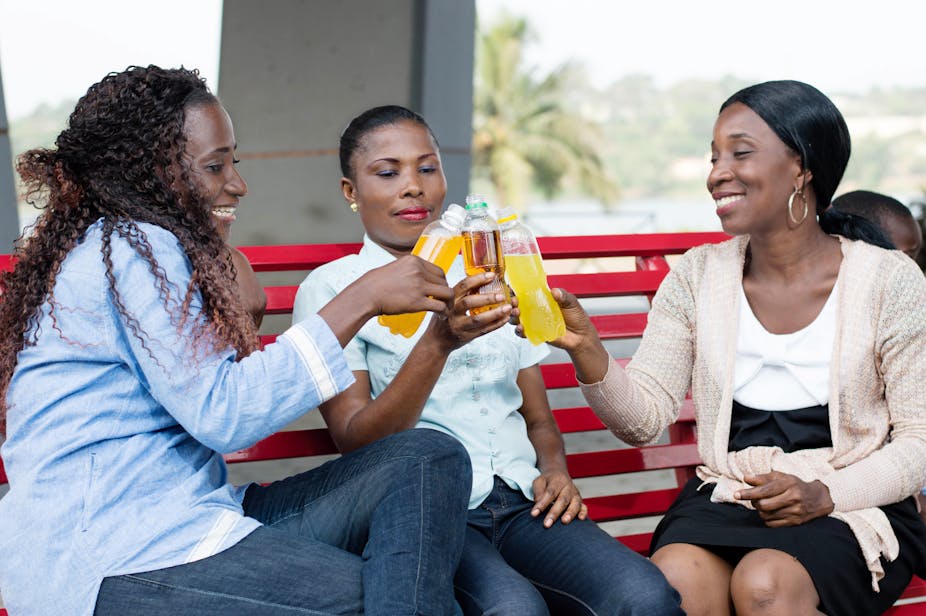Kenya is experiencing a rise in obesity. Overweight and obesity among women increased from 25% in 2008 to 33% in 2014. An estimated one in four Kenyan urban children are overweight or obese. At the same time there has been a rise in associated noncommunicable diseases. These include diabetes, cardiovascular diseases and cancer. Noncommunicable diseases now account for over 50% of hospital admissions in the country.
Globally, the rise in noncommunicable diseases has been attributed to the growing consumption of unhealthy foods such as sugar-sweetened beverages. Between 2018 and 2019 Kenya registered a 30% spike in sugar production and an increase in sugar consumption from the growth of retail, industrial and food service sectors.
To control the rising burden of obesity and noncommunicable diseases the World Health Organisation (WHO) recommends a tax on sugar-sweetened beverages. It views such taxes as a population-level, cost-effective measure to discourage consumption of sugar-sweetened beverages.
The approach has been widely used in several countries including South Africa. However, to date, Kenya has no standalone sugar-sweetened beverage tax policy.
We undertook research into the possibility of implementing a sugar-sweetened beverage tax in Kenya.
The study entailed a desk review of existing evidence on noncommunicable diseases and sugar-sweetened beverages. We also conducted interviews with a wide range of experts to explore the policy and political context as well as the enablers of and barriers to such a policy.
We identified a number of barriers to adopting a tax on sugary drinks in Kenya. These included limited evidence on sugar-sweetened beverages as a risk factor for noncommunicable diseases in Kenya. We also found industry interference in the development of sugar-sweetened beverage taxation policy.
But we also found that existing policies provided an opportunity to pursue a sugar tax in the country. These include the Kenya Health Policy and the National Strategy for Control and Prevention of Noncommunicable diseases.
Barriers
A number of factors accounted for the fact that Kenya hasn’t pursued a tax on sugar-sweetened beverages.
The first was a dearth of up-to-date publicly available information on sugary drinks sales and consumption in Kenya. Data are essential to guide the decisions and process of development and adoption of a stand alone sugar-sweetened beverage tax.
Interviewees also cited lack of information in the general population about sugar-sweetened beverages and how they affect health. They attested to the fact that tobacco and alcohol are widely recognised risk factors for noncommunicable diseases. Not so with sugar-sweetened beverages.
An important barrier when we are dealing with sugar-sweetened beverages is the fact that the public does not appreciate that this is a problem. What do respectable old men and women in the village, church elders, take when they go for a meeting? It is tea, Coca-Cola, Sprite, Fanta. I think it presents a subtle challenge that we don’t have when we are dealing with tobacco or alcohol. Nobody argues about the adverse consequences of tobacco or of alcohol.
A second barrier we identified was that government ministries held different and sometimes opposing interests.
For instance, the ministry of health was interested in improving health and discouraging the trade, production and marketing of sugary drinks. But the ministry of industry, trade and cooperatives promoted the sugar and food processing industries as major revenue for government.
Our key informants felt that these opposing priorities might get in the way of a sugar-sweetened beverage taxation policy being developed.
A third factor we identified was industry lobbying against sweet drinks taxation. The sugar-sweetened beverage companies were described by key informants as having major influence over government decision making. This was because of the power they wielded in terms of their operations, and their contribution to the government revenues. They also use industry alliances and formations to fight sugar-sweetened beverage taxes, which may overwhelm an under-resourced government like Kenya’s.
As one interviewee put it:
… unfortunately, there’s a lot of industry interference with policy (on sugary drinks). This is a big industry; very big in terms of capital and also in terms of influence. They pay a lot of tax to government and they have a lot of leverage … An industry like that of course has a lot of policy interference because they have big money they can compete with us.
Kenya does charge an excise tax on all soft drinks of 10 Kenya shillings (0.10 USD) per litre. This includes sugar-sweetened beverages. And in 2018 an excise tax of 20 shillings (0.20 USD) per kilogram was imposed on sugar confectionery and chocolate.
But these taxes were introduced as a revenue generation strategy, not as a means to manage noncommunicable diseases. They are likely to have only a minimal impact on the consumption of sugary drinks.
Going forward
We made a number of recommendations on how a sugar-sweetened beverage tax could be developed and implemented in Kenya.
First, public and policymaker education is critical to challenge the prevailing attitudes to sugary drinks.
Second, strategies to develop industrial growth should be critically examined to understand how they could undermine the government’s commitment to addressing noncommunicable diseases. This will require wide stakeholder engagement beyond the ministry of health in policy development.
Third, civil society needs to be involved in sustained advocacy to ensure that Kenyans understand the issues at hand.
And more research evidence is needed to support an explicit sugar-sweetened beverage taxation policy. Kenya also needs to gather local and regional or international evidence to inform and guide its decisions in the development and adoption of a standalone tax on sugary drinks.

